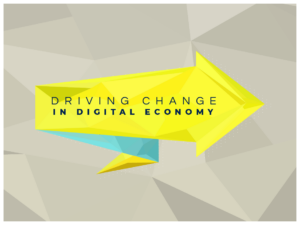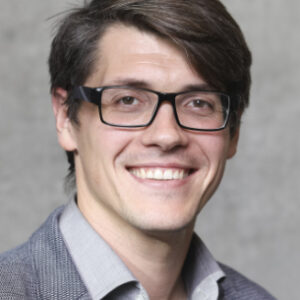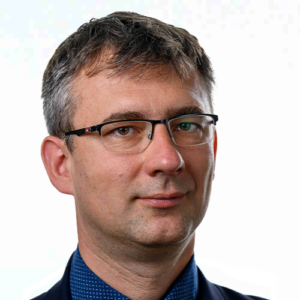
Driving Change in Digital Economy
Graz University of Technology
Georg Macher, Omar Veledar, Stefan Vorbach
Contact
If you are interested in the course, please feel free to contact us!
Sign up for the course:
Contact person for this course:
Dr. Helmut Aschbacher
helmut.aschbacher@tugraz.at
+43 316 873 – 4943
For further questions please write us directly an e-mail to office@microcredentials.at
Course leadership

Prof. Dipl.-Ing. Dr.techn. Stefan Vorbach heads the Institute for Entrepreneurship and Organization and is academic director of the university courses “Leadership in Digital Transformation (MBA)” and “Digital Leadership (EMBA)”. Among other things, he teaches Technology Entrepreneurship. Techno-economics, Fundamentals of Business Management and Organization. The focus of the institute is on technology-oriented business models and their management. On the one hand, its research includes the innovation of existing business models of companies in technology-oriented industries due to internal and environmental developments (e.g. increasing digitalization). On the other hand, the institute investigates the development of completely new business models (e.g. start-ups).

Dr. techn. Georg Macher, MBA holds a Ph.D. in Electronics and an MSc. in Telematics from Graz University of Technology. Since 2018, he has been working at the Institute of Computer Engineering, where he heads the Industrial Informatics research group as a Senior Scientist. His research expertise includes system and software engineering, software technology, process improvement, functional safety and cyber-security engineering. In 2021, Dr. Macher completed his MBA at the WU Executive Academy and specialized in innovation and digitalization in the automotive industry. With over 145 publications and a significant presence in various program committees and industrial working groups, he is also active as a consultant, coach and trainer in the industry, focusing primarily on reliability engineering and the automotive sector.

Omar Veledar is an innovation and R&D project manager focused on creating impact and sustainable application of technical solutions in the fields of IoT, vehicle control, mobility, AI, etc. His technical background is in automotive instrumentation (since 2011) and scientific research in the field of applied physics with an education in electronics design. He received a BEng (Hons) in 2002 and a PhD in 2007 from the University of Northumbria in Newcastle (UK). He completed an MBA degree at the Vienna University of Economics and Business (AT), with a specialization in project management in 2019. He is entrusted with sourcing, building and coordinating R&D programs with a focus on sustainable innovation management.
Course information
Course content
Digital business and fields of activity are experiencing enormous growth. This results from all online activities between people, companies and end devices and involves several trillion pieces of data and processes every day.
In 9 lessons, you will gain a systematic overview of new business and action fields in the digital economy. This includes an understanding of the conceptual foundations and drivers of digital transformation. The entrepreneurial thinking approaches learned in the course will also equip you with the necessary tools to implement them. In the final transfer project, you will have the opportunity to develop a concrete example from your everyday work/company using the technologies presented.
This course is part of the EMBA Green and Digital Transition as well as the MBA Leadership in Digital Transformation and EMBA Digital Leadership. Completion of the course can be credited towards the EMBA Green and Digital Transition, the MBA Leadership in Digital Transformation and the EMBA Digital Leadership.
Previous knowledge
No special prior knowledge is required for the MOOC (online phase).
The course is particularly suitable for managers (e.g. managing directors, R&D managers, project managers, quality engineers, business economists) who are involved in digitalization processes and digital business models from the following industries:
- Industry, R&D
- Consulting services
- Trade and logistics
- Energy industry
The decision on admission is made by the academic course director on the basis of the qualifications submitted.
Certificate
Participants who complete the self-study MOOC will receive a certificate of attendance from Graz University of Technology. Participants who successfully pass an exam as part of the practice and transfer phase of the course will be awarded a certificate from Graz University of Technology. In addition, you will receive 5 EC.
Assessment
- online phase – MOOC: The assessment of the online phase/MOOC takes place via an online self-assessment (single or multiple choice).
- Face-to-face lessons: The assessment of the attendance face-to-face lessons takes the form of an examination included in the course.
- Transfer phase: The assessment of the transfer phase takes the shape of a transfer project in the form of a project report or a presentatiopresentation of the project results.
All info at a glance
Learning goals
-
- recognize new business areas in the digital economy
- describe trends, drivers and conceptual foundations of digital transformation
- explain opportunities and fields of action in the digital economy
- apply established concepts to classify the corporate environment in a/your own corporate context
- understand the implications of digital value creation in the company’s ecosystem and classify them using theoretical concepts
- recognize and use digitalization potential along the corporate value chain
- understand and seize opportunities to use digital (product) data
- recognize digitalization potential in products and services
- develop digital business models for a/their own company
- use approaches and methods of entrepreneurial thinking to implement digital business models
- apply approaches for managing technology-oriented companies to the business areas of the digital economy
- analyze specific issues of the digital economy and structure and process complex strategic situations and developments in a solution-oriented manner.
- independently research relevant information in the digital economy, evaluate studies in a well-founded manner and assess their relevance for their own questions
Course stucture
The course is divided into the following four consecutive phases:
- online phase: basics in self-study
Independent work on the basic literature and acquisition of the basics are offered as an asynchronous distance learning element on our partner platform iMooX (https://imoox.at/) as preparation and follow-up to the face-to-face lessons. The average workload is 37.5 working hours (1,5 ECTS, approx. 4-5 weeks). - presence phase: guided in-depth study & practice
The face-to-face phase is held in a mixture of frontal lecture, as well as question and discussion formats, with a lot of space devoted to joint discussion (in plenary, in groups). The lecturer’s theoretical input is illustrated and consolidated using examples. Further tasks are worked on individually or in groups during the attendance time or prepared or followed up as part of self-directed learning. Each face-to-face unit begins with a short verbal learning objective check on a voluntary basis, which consolidates the teaching content of the online phase (1,5 ECTS, 3 days). - transfer phase
An application-oriented transfer project rounds off the didactic concept of this module and focuses on concrete tasks and operationalization. The attendance and transfer project comprises an average of 80 working hours (2 ECTS, approx. 4-5 weeks).
Course dates
Kick-off for online phase: one week prior to the online phase, before or after the workday and online.
FAQs
Here you will find answers to the most important questions about Microcredentials in cooperation with iMooX.at.
Microcredentials are “mini-diplomas” of approximately 75-125 hours of effort that demonstrate knowledge and/or skills in a specific subject area. To earn a microcredential, it is necessary to first complete an online self-study course, then attend a guided exercise and transfer phase (online or face-to-face) supervised by subject experts. After passing a final assessment, you will receive a certificate issued by a university.

